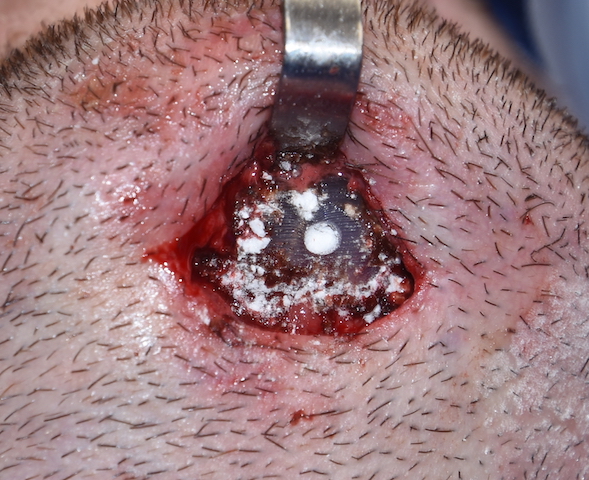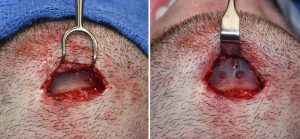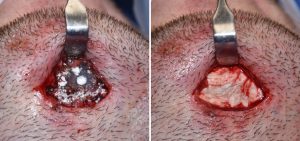Infections of facial implants is always a concern although fortunately their occurrence is fairly low. (1% to 2%) This potential risk is no less so with custom facial implants and, from some perspectives, may be even greater. This can theoretically be because many custom implants are bigger in size and may require multiple incisions to place them.
This becomes most relevant in custom jawline implants which are the largest facial implants that are placed and do require three incisions to place them. Given their size and incision number, it should be no surprise that their infection risk would be somewhat greater than a much smaller chin implant that is placed through a single inciseon. In my experience the risk of infection is custom jawline implants is 3% to 4%.
When an infection occurs in a custom jawline implant, or for any facial implant, the initial approach is oral antibiotics. This alone may resolve it in some, but not all, cases. When it does not surgical intervention is needed. While the definitive treatment for an implant infection is its removal, that is usually not appealing to the patient or myself.
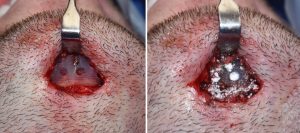
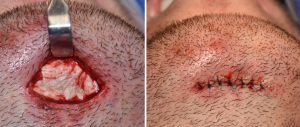
While not needed in all cases of facial implant infections, antibiotic wells and alloderm grafts are other options to consider in the management of difficult infections.
Dr. Barry Eppley
Indianapolis, Indiana

